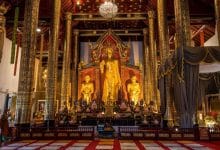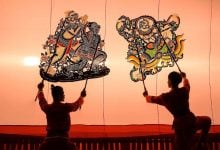UNESCO-recognised Songkran festival goes global

Thailand’s Songkran Thai New Year celebrations have gathered international attention, with 35 foreign embassies collaborating with the Thai government to promote the festival worldwide. This initiative comes after UNESCO recognised the festival as an intangible cultural heritage in December of last year.
Culture Minister Sermsak Pongpanich revealed that the embassies have produced a series of short videos wishing Thais a happy traditional New Year.
“These clips are being shared on the Ministry of Culture’s social media platforms, giving the world a glimpse of Songkran and its cultural significance to Thailand.”
The embassies involved in this project include Bahrain, Belgium, Brazil, Brunei, Canada, China, Denmark, Finland, France, India, Indonesia, Iran, Japan, Kazakhstan, South Korea, Kuwait, Laos, Luxembourg, Malaysia, Mexico, Mongolia, Morocco, the Netherlands, Nigeria, Russia, Romania, Saudi Arabia, Singapore, South Africa, Sri Lanka, Switzerland, Timor-Leste, the United Arab Emirates, the US and the European Union.
This year’s Songkran festival has noted an impressive increase in the number of international tourists, particularly flocking to Bangkok, according to Somboon Homnan, chief of the Bangkok Metropolitan Administration’s (BMA) operation centre.
In light of several issues observed on the first day of the festival, the BMA increased the number of police and municipal officials at Silom and Khao San roads, the city’s two most frequented water festival sites, on the second day. Traffic on Silom Road was restricted, with one lane reserved for emergency use from midday until 8pm.
Despite the festive atmosphere, Somboon reported 11 instances of pickpocketing on the first day of the celebration and urged festival-goers to stay vigilant. To manage the crowd and ensure safety, more than 3,000 police and security officers were deployed at Khao San Road on the second day of the festival, reported Bangkok Post.
In addition, vendors at both Silom and Khao San Road were instructed to operate from the alleys rather than the pavement, following complaints of congestion on the first day of the festival, added Somboon.
Latest Thailand News
Follow The Thaiger on Google News:


























